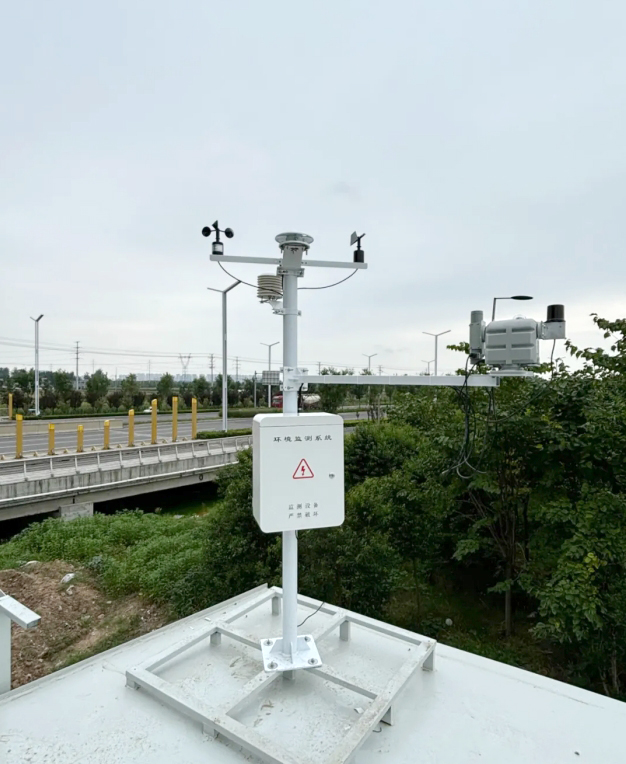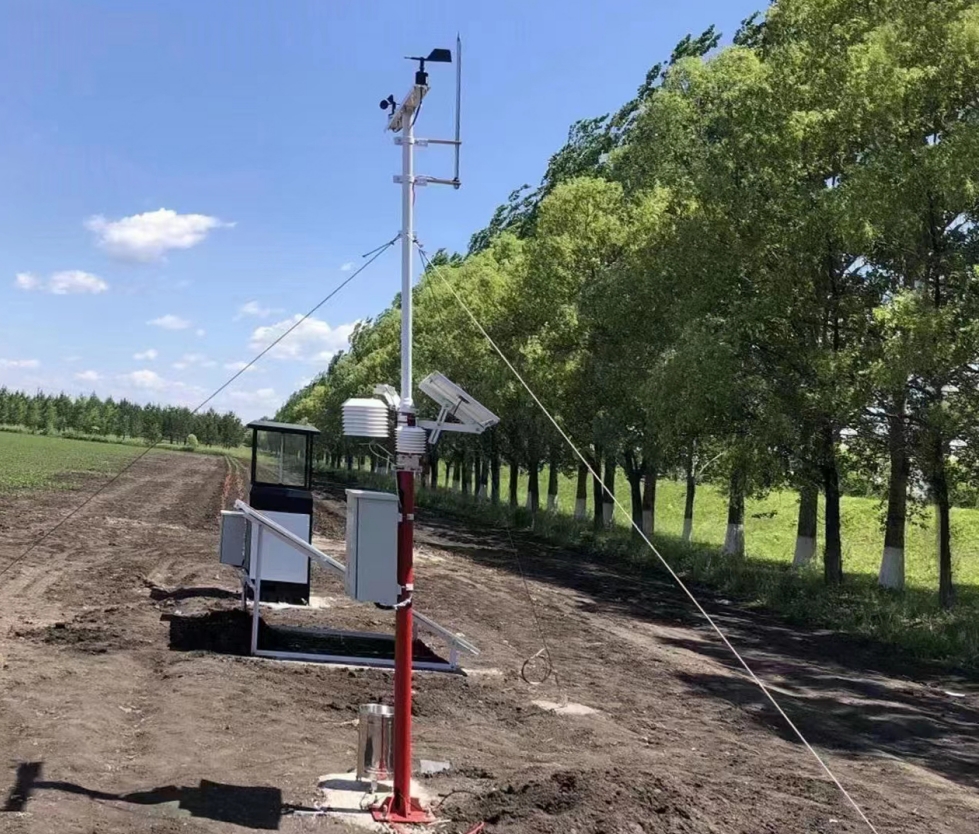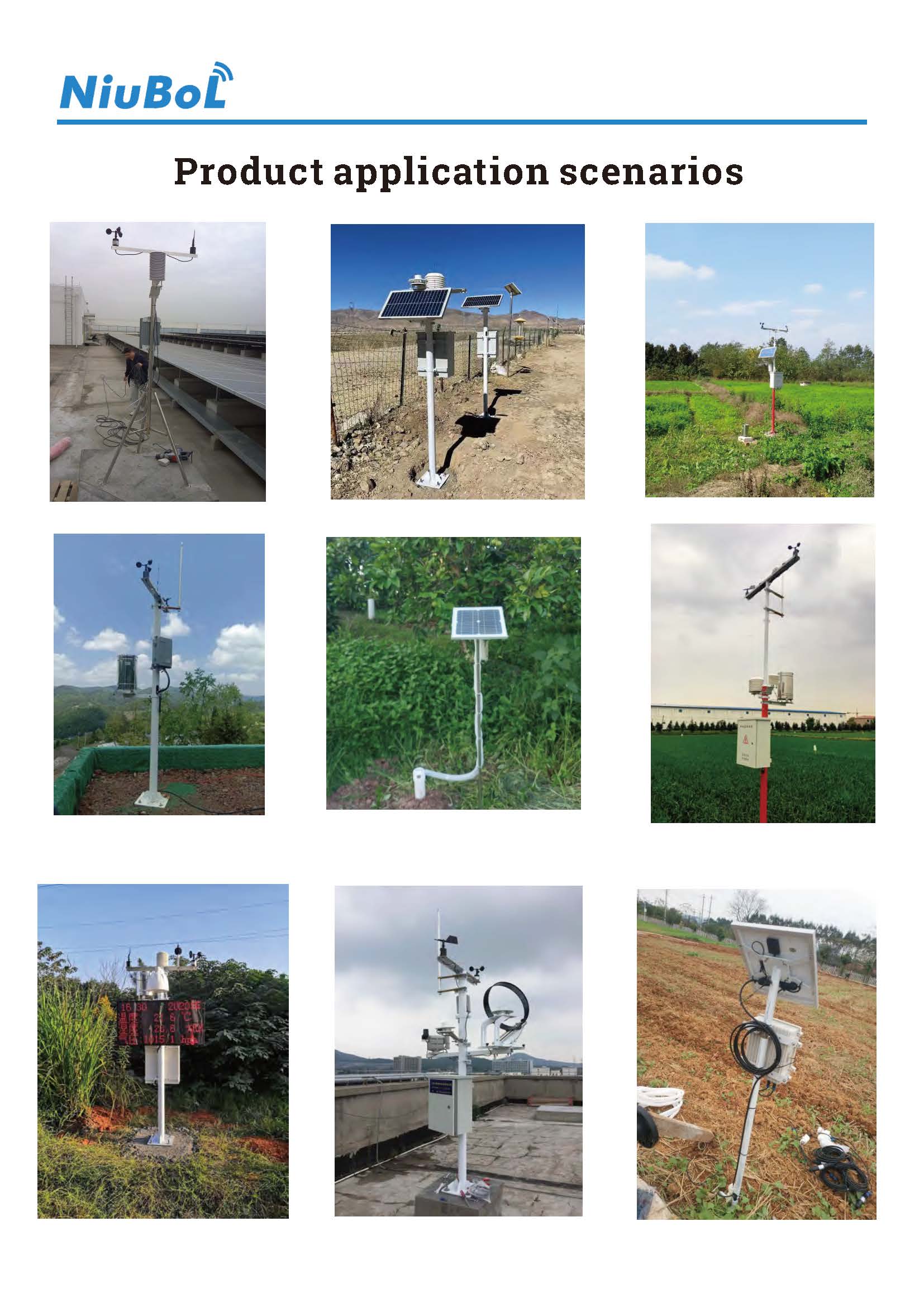

— Blogs —
—Products—
 Consumer hotline +8618073152920
Consumer hotline +8618073152920 WhatsApp:+8615367865107
Address:Room 102, District D, Houhu Industrial Park, Yuelu District, Changsha City, Hunan Province, China
Product knowledge
Time:2025-01-16 14:04:24 Popularity:1175
In the ever-changing natural environment, meteorological information is crucial for agriculture, transportation, environmental protection, national security, and other fields. With the rapid development of technology, smart weather stations, as an essential part of modern meteorological observation systems, are providing powerful support for the sustainable development of human society with unprecedented accuracy and timeliness.
A weather station is a device used to collect and record meteorological data. Traditional weather stations usually collect meteorological data through manual operation or limited automatic monitoring equipment. On the other hand, smart weather stations are upgraded on this basis, utilizing advanced sensor technology, IoT communication, cloud computing, and big data analysis to build an efficient, accurate, and automated platform for meteorological data collection and analysis. Smart weather stations can continuously monitor, transmit, and analyze data under various environmental conditions to provide accurate weather forecasts and early warning information.
The working principle of smart weather stations involves the integration of multiple high-tech fields. They monitor a variety of meteorological elements such as air temperature, humidity, atmospheric pressure, wind speed and direction, precipitation, and UV intensity through high-precision sensors deployed in various geographical locations. These sensors' precision and response speed significantly enhance the reliability and timeliness of meteorological data.
After data collection, smart weather stations use wireless transmission technologies (such as LoRa, 4G/5G, or satellite communication) to upload the monitoring data in real-time to cloud servers. Cloud platforms process the collected data through advanced data processing and analysis algorithms to provide services such as weather forecasting and meteorological early warning. Finally, users can obtain the latest meteorological information in real-time through mobile apps, websites, and other channels to respond to the ever-changing natural environment.
The technological advantages of smart weather stations are primarily reflected in the following aspects:
1. High Precision Monitoring: With the use of high-precision sensors and advanced measurement technologies, data accuracy and reliability are ensured, providing a solid foundation for weather forecasting.
2. Real-Time Transmission: Leveraging IoT technology, weather data can be transmitted instantly, significantly shortening the response time for weather forecasts and enhancing the timeliness of meteorological information.
3. Intelligent Analysis: Using big data and AI algorithms for data analysis improves the accuracy of weather forecasting, enabling early warnings and better preparation for extreme weather events.
4. Remote Management: Supporting remote monitoring and configuration, this reduces the need for manual intervention and maintenance costs while enhancing system operational efficiency.
5. Strong Environmental Adaptability: The design of the devices takes extreme weather conditions into account, ensuring stable operation in high temperatures, severe cold, or strong winds, thus adapting to various complex climate conditions.

Smart weather stations have a wide range of applications across multiple fields such as agriculture, transportation, energy, and disaster prevention, demonstrating significant social value:
1. Agricultural Production: Accurate meteorological information helps farmers organize agricultural activities, predict and prevent natural disasters (such as droughts, heavy rains, etc.), reduce agricultural losses, and improve crop yield and quality.
2. Urban Transportation: Real-time meteorological data provides decision support for traffic management, enabling timely adjustments to traffic management strategies. For example, by issuing early warnings for heavy rain, fog, or other adverse weather conditions, traffic flow can be optimized to ensure road safety and smooth traffic.
3. Energy Management: Smart weather stations play an important role in the new energy sector, particularly in wind and solar energy generation stations. Meteorological data helps energy management departments perform precise scheduling, improving energy utilization efficiency and ensuring a stable energy supply.
4. Disaster Prevention and Mitigation: By providing early warnings for extreme weather events (such as typhoons, blizzards, heavy rains, etc.), smart weather stations offer valuable time for emergency response and disaster relief, reducing the damage caused by disasters.
5. Public Services: Smart weather stations not only provide accurate weather forecasts for the public but also offer personalized services such as health warnings and travel suggestions, improving the quality of life.

Smart weather stations are not only a symbol of technological progress but also an important force driving sustainable social development. With continuous technological upgrades, smart weather stations will play an increasingly important role in a broader range of fields. Their future development is expected to follow the following trends:
1. Higher Precision: The continuous advancement of sensor technology will further improve the accuracy of meteorological data collection, making weather forecasts more accurate and reliable.
2. Broader Coverage: The application of new technologies such as satellite remote sensing and drones will expand the coverage of meteorological observation, achieving seamless global monitoring.
3. Deeper Integration: Smart weather stations will be more deeply integrated with industries such as smart cities, smart agriculture, and smart energy, driving various industries towards smarter and more refined directions.

In conclusion, smart weather stations are leading the meteorological observation and service industry into a new era with their unique technological advantages and broad application value. In the future, they will continue to safeguard the sustainable development of human society, opening a new chapter in meteorological observation and service driven by technological innovation.
Related recommendations
Sensors & Weather Stations Catalog
Agriculture Sensors and Weather Stations Catalog-NiuBoL.pdf
Weather Stations Catalog-NiuBoL.pdf
Related products
 Combined air temperature and relative humidity sensor
Combined air temperature and relative humidity sensor Soil Moisture Temperature sensor for irrigation
Soil Moisture Temperature sensor for irrigation Soil pH sensor RS485 soil Testing instrument soil ph meter for agriculture
Soil pH sensor RS485 soil Testing instrument soil ph meter for agriculture Wind Speed sensor Output Modbus/RS485/Analog/0-5V/4-20mA
Wind Speed sensor Output Modbus/RS485/Analog/0-5V/4-20mA Tipping bucket rain gauge for weather monitoring auto rainfall sensor RS485/Outdoor/stainless steel
Tipping bucket rain gauge for weather monitoring auto rainfall sensor RS485/Outdoor/stainless steel Pyranometer Solar Radiation Sensor 4-20mA/RS485
Pyranometer Solar Radiation Sensor 4-20mA/RS485
Screenshot, WhatsApp to identify the QR code
WhatsApp number:+8615367865107
(Click on WhatsApp to copy and add friends)
